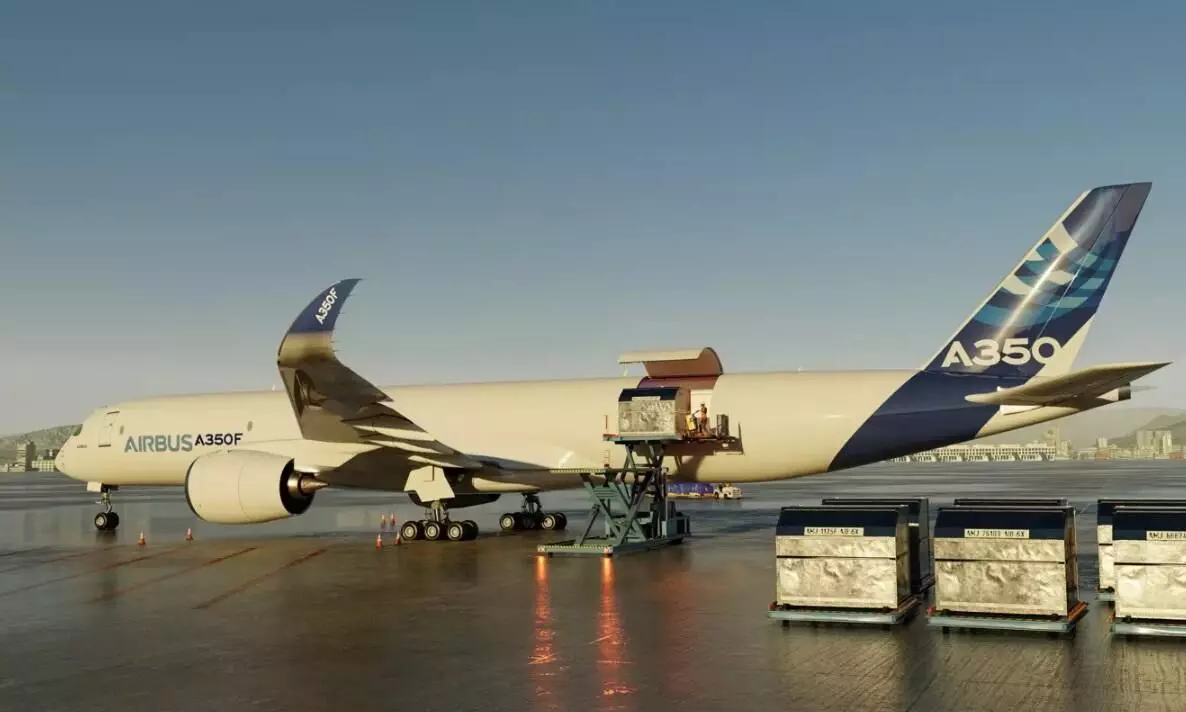
“The real competition is the 777-8F from Boeing”
Despite Boeing's challenges, Airbus has been securing orders for its new production freighter A350F.

In the realm of aviation and the air cargo industry, two major players dominate aircraft manufacturing: Boeing and Airbus. They maintain a fierce rivalry in the market, although the situation is not equal for both manufacturers. The American company Boeing is facing a series of challenges due to some recent and past events such as aircraft crashes, mid-flight door failures, aircraft malfunctions, as well as delays in aircraft production and approvals. These issues have affected Boeing's reputation in the industry. Meanwhile, its competitor Airbus is gaining ground, securing more orders for its latest freighter, the Airbus A350F which is based on the Airbus A350-1000 passenger aircraft. This is further solidifying Airbus’ position and is likely to impact Boeing's market share.
According to the latest media reports, Atlas Air, a major American cargo airline known for its fleet of Boeing wide-body aircraft, is reportedly considering a transition to Airbus. The company's decision stems from concerns regarding the delivery schedule of Boeing's upcoming freighter, the 777-8F, which Boeing previously announced would enter service in 2027. In contrast, Airbus plans to launch its Airbus A350 freighter in the first half of 2026. If Atlas Air opts for Airbus over Boeing for its new freighters, it would deal a significant blow to Boeing's reputation.
The initial projected entry into service for the Airbus A350F, set by Airbus during its launch in 2021, was by the end of 2025. However, during an exclusive interview for STAT Media Group, at the IATA World Cargo Symposium held in Hong Kong recently, Crawford Hamilton, Head of Freighter Marketing at Airbus, discussed the development and delays related to the Airbus programme.
Crawford highlighted that despite the delay to 2026, Airbus has improved the aircraft significantly, particularly with the enlargement of its door, now the largest in the industry at 170 inches wide and under 124 inches high. This enhancement allows for easier accommodation of large jet engines, such as those found on the 787 or A330 Neo, in one piece. Moreover, the increased door size enables the loading of bigger package sizes, including even 20-foot shipping containers, providing greater flexibility. Additionally, Airbus has increased the payload by two tonnes, from the initial 109 tonnes to 111 tonnes.
Crawford emphasised that while there has been a slight delay, Airbus's focus remains on providing its customers with superior solutions and enhanced capabilities, which they appreciate.
Crawford said that the manufacturer had no order for its A350 freighter in the year 2021. However, now it has an order for around 55 aircraft, including airlines like Singapore Airlines, Cathay Pacific, and the new customer, Starlux, which positions it equally with its competitor in terms of orders.
Crawford also pointed out that with the discontinuation of the 777F's production by the end of 2027, Airbus finds its main competition in Boeing's 777-8F. He emphasised Boeing's extensive market dominance, referencing the quad-engine jet, the 747. Crawford underscored the significant fuel efficiency advantage of the new A350F over the 747, with the A350F burning 40% less fuel.
In discussing the market for converted freighters, Crawford from Airbus highlighted a substantial demand for single-aisle freighters, such as the Airbus A320 and A321, estimated to exceed 1000 aircraft. Regarding mid-size freighters, he mentioned the Boeing 767, which has a line built to reproduce it; however, he noted that Airbus has the A330 to compete in this segment.
In the passenger market, Japan Airlines (JAL) just announced its commitment to purchase 21 A350-900s and 11 A321neos. Meanwhile, Korean Air surprised the industry by ordering 33 Airbus A350 aircraft, including 27 A350-1000s and 6 A350-900s.
Undoubtedly, the Airbus A350 is Airbus' best and most highly efficient product. In the global air cargo industry, there’s anticipation among the operators about the arrival of the new Airbus A350F.
To watch the full interview of Crawford Hamilton, click here.


